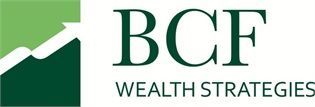April is Financial Literacy Month, a time dedicated to improving our understanding of essential financial concepts. Grasping these ideas can help you make smarter money decisions and set you on the path to financial independence. Investing time in learning these terms empowers you to better manage your finances and secure a more stable future.
Lending Terms
Collateral
Collateral is an asset used to secure a loan, like a home or car. If you default on the loan, the lender can take the collateral to recover their losses. Understanding collateral helps you weigh the risks involved in borrowing and encourages careful consideration before taking on loans.
Equity
Equity refers to the ownership value you build in an asset, such as a home. As you pay off your mortgage or the value of your home increases, your equity grows. This increased equity can be used for potential borrowing, such as home equity loans, providing opportunities to leverage your assets effectively.
Credit Terms
Annual Percentage Rate (APR)
APR is a critical concept that reflects the true cost of borrowing, including interest rates and fees. Understanding it allows you to compare different loan offers, ensuring you choose the most cost-effective option. It’s essential for managing credit card debt and personal loans effectively.
Annual Fee
An annual fee is a charge you pay for certain financial products, such as credit cards with premium perks. Assessing the value of these benefits against the fees helps determine if they are worth the cost, ensuring you only pay for services that add real value to your financial strategy.
Savings Terms
Compound Interest
Compound interest allows your savings to grow faster by earning interest on both the original amount and the accumulated interest over time. For example, investing $1,000 at a 5% annual interest rate can grow significantly over the years through compound interest, illustrating how it exponentially increases your savings over time.
Pay Yourself First (PYF)
PYF is a simple yet powerful budgeting strategy that prioritizes allocating funds to your savings before other expenses. By setting aside money for savings initially, you ensure consistent growth in your savings account, building a financial cushion for future needs and unexpected expenses.
Embracing these terms is a step towards financial literacy and independence. By understanding these concepts, you are taking small yet impactful steps on your financial journey, setting the foundation for a more prosperous financial future.
Contact Info
8233 Byron Center Avenue SW
Suite K
P.O. Box 189
Byron Center, MI 49315
Phone: (616) 583-9000
Email: info@bcfws.com
Check the background of your financial professional on FINRA's BrokerCheck.
Investment Advisory Services are offered through IP Financial Advisory Services LLC. IP Financial Advisory Services LLC is a Registered Investment Advisory Firm with the SEC under the Investment Advisers Act of 1940. Kevin Fifield is an Investment Advisor Representative of IP Financial Advisory Services LLC.
The contents of this website are strictly intended for individuals residing in the State of Michigan. No offers may be made or accepted from any resident outside of the State of Michigan. BCF Wealth Strategies and IP Financial Advisory Services LLC are not affiliated entities.
